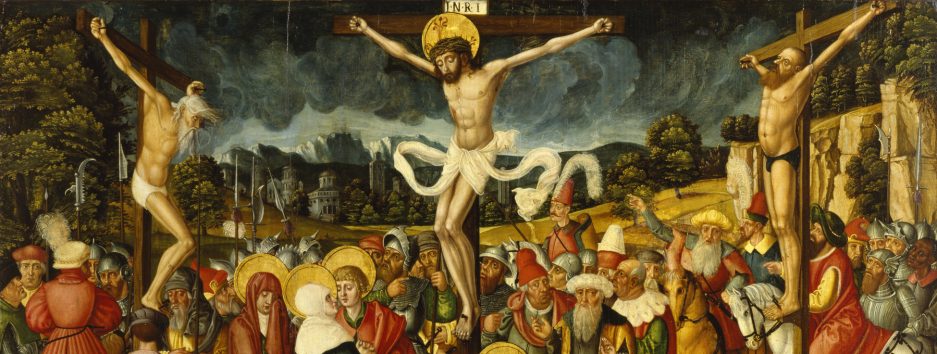Christopher Marlowe’s Doctor Faustus is a classic of the Elizabethan era, packed with enough theological musings, existential angst, and demonic shenanigans to keep audiences entertained for over four centuries. Let’s take a deep dive into this magnum opus, and lighten the heavy dose of hellfire and brimstone.
The Plot: A Scholar’s Tragicomedy
At its core, Doctor Faustus is the story of a man who wants it all and is willing to trade his soul to get it. Faustus, a highly educated man, feels that conventional knowledge is beneath him. In an Elizabethan version of a midlife crisis, instead of buying a sports car, he summons a demon. Faustus’ deal with the devil, brokered by the suave and sinister Mephistopheles, gives him 24 years of unlimited knowledge and magical powers in exchange for his soul. It’s the ultimate “Buy now, pay later” scheme, with a fiery twist.
Characters: Faustian Follies
Doctor Faustus: Our protagonist, or perhaps more accurately, our protagon-idiot, is a man of immense learning but equally immense hubris. Faustus epitomises the tragic flaw of overreaching ambition. He’s like the person who thinks they can handle eating an entire pizza alone but ends up regretting it after slice seven. Faustus believes he can outwit the devil and ends up as the eternal example of why you should always read the fine print.
Mephistopheles: The devil’s emissary is smooth, persuasive, and possesses a wit sharp enough to slice through Faustus’ delusions. He’s the type of salesman who could convince you to buy a one-way ticket to Tartarus and make you think it’s a holiday package. His mix of cynicism and dark humor provides a perfect counterbalance to Faustus’ earnest but misguided ambition.
Lucifer: The big boss downstairs who seals the deal with Faustus. His appearances are brief but impactful, reminding Faustus – and the audience – that hell is a very real and very unpleasant place. Think of him as the strict manager who only shows up to enforce the most draconian of company policies.
The Good and Bad Angels: These two are like Faustus’ internal Google Reviews. The Good Angel urges caution, suggesting Faustus might want to rethink that one-star decision to sell his soul. The Bad Angel, on the other hand, is all five stars, encouraging Faustus to live a little – eternally damned soul be damned.
Themes: Heavy Thoughts with a Light Touch
The Quest for Knowledge: Faustus’ insatiable thirst for knowledge is his driving force. But let’s be honest, his approach is less about scholarly pursuit and more about academic gluttony. It’s as if he’s enrolled in a demonic Ph.D. program with no intention of attending the afterlife graduation ceremony. His tragedy serves as a cautionary tale: sometimes it’s better to leave some things unknown, like the contents of a roommate’s fridge.
Good vs. Evil: The moral tug-of-war between the Good Angel and the Bad Angel is Faustus’ constant internal struggle. It’s a bit like having Jiminy Cricket on one shoulder and a used car salesman on the other. This dichotomy explores the human condition’s inherent conflict between doing what’s right and what’s convenient, wrapped in a delightful package of Elizabethan drama.
Power and Corruption: Faustus gains immense power, but what does he do with it? Instead of solving world hunger or achieving world peace, he pulls pranks and conjures up silly tricks. It’s akin to using a supercomputer to play Solitaire. His misuse of power underscores the idea that absolute power not only corrupts absolutely but also leads to absolutely foolish uses.
Damnation and Redemption: Faustus’ ultimate downfall is his failure to repent. He procrastinates on repentance like it’s a tedious chore, and by the time he realises the gravity of his situation, it’s too late. His cries for salvation in the final act are as frantic as a student realising an essay is due in five minutes. His fate is a sombre reminder of the consequences of putting off important decisions.
Staging and Spectacle: Elizabethan Special Effects
Marlowe’s play wasn’t just about deep themes; it was also a feast for the eyes. From summoning spirits to flights of fancy, Doctor Faustus was the 16th-century equivalent of a blockbuster with CGI. The Elizabethan audience would have been thrilled by the play’s magical spectacles, much like modern audiences are wowed by the latest superhero flicks. Imagine Mephistopheles appearing in a puff of smoke, a sort of demonic David Copperfield, impressing the groundlings and nobility alike.
Conclusion: The Enduring Legacy
Doctor Faustus remains a timeless piece because it addresses universal human concerns: the desire for knowledge, the temptation of power, and the consequences of our choices. Its humour and horror blend seamlessly to provide a narrative that is both entertaining and thought-provoking. Faustus’ tragic tale is a darkly comedic reminder of our own follies and the dangers of overreaching ambition.
In the end, Marlowe’s play is a masterpiece that allows us to laugh at Faustus’ foolishness while also shuddering at his fate. It’s a brilliant reflection on the human condition, wrapped in a narrative that’s as engaging today as it was in the 16th century. So, the next time you’re tempted to sell your soul for a bit of worldly gain, remember Faustus – and maybe settle for a less hellish bargain.

One thought on “Doctor Faustus”